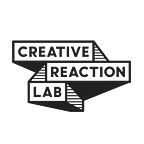Dismantle, Design, Rebuild with Design For America at Washington University
Written by Alicia Weinstein, Program + Education Associate at Creative Reaction Lab
Last Thursday, I got to participate in a workshop at Washington University in St. Louis with our Associate Manager, Learning and Education, Erika Harano. In a whirlwind one and a half hour session, we briefly learned about Equity-Centered Community Design, discussed the roles of humility and empathy in activism work, examined our own identities and biases, and selected an important issue around which we would want to see change.
Conversations around identity, social issues, and inequity are fairly common among college students, but this was something different. Often, we talk about these topics as something separate from ourselves, making inequity a conceptual problem that gets acknowledged and discussed without consideration of our own individual roles and biases. In this workshop, we dove into our own identities, beginning to recognize how we personally relate to and engage with systems of inequity. During the Paseo Protocol activity, co-created by Stanford d.school’s Liberatory Design team and Creative Reaction Lab, Erika walked us through the process of acknowledging a number of aspects of our identities, noting the privileges and/or challenges that came from each, becoming aware of the biases we hold, and figuring out how and when we have impact on dialogues and decisions.
It was a vulnerable experience to share these answers with strangers. At first it seemed as if some line were being crossed, that there was something taboo about blatantly stating and discussing our own privileges, challenges, and impact in anything but vague terms. Within a few minutes it became comfortable, though, and it began to seem shocking that it isn’t more common to engage in a kind of conversation that’s clearly so important. Of course, we didn’t leave the room having fully come to understand our identities, biases, and impacts — that’s not possible in a mere hour and a half. But we did learn a new way of thinking, and set in motion the process of considering how we fit into the systems that are in place. We started gaining tools to approach situations while keeping in mind how our identities lend us certain levels of impact, and maybe adjust our actions accordingly. And hopefully, we’ll all continue learning, listening, and having these conversations.
We ended the session by quickly brainstorming action statements around social issues we found important, one of which would go on to be the subject of the following workshop as we shift from acknowledging and identifying issues to crafting approaches that address them.
Special thanks to Design for America at Washington University in St. Louis for inviting Creative Reaction Lab to facilitate this workshop!
